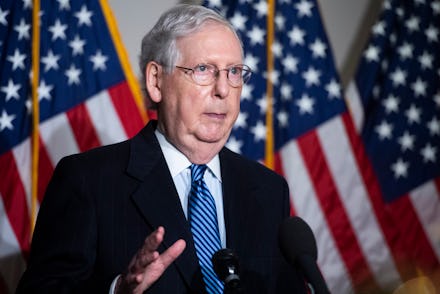Now is the last chance for Congress to do anything about coronavirus this year

As the coronavirus pandemic approaches its one-year anniversary, the situation is growing worse nationwide. With cases soaring, millions of Americans are looking to the federal government to provide some form of relief. On Monday, Congress reconvened for a roughly two-week lame duck session, and while they could pass a second coronavirus relief bill in that time, it unfortunately still seems unlikely.
Congress will reconvene for about 10 days before going on holiday break, and there is plenty for lawmakers to address. Perhaps most importantly, they are facing down a Dec. 11 deadline to come up with a budget, otherwise there will be a government shutdown. This is key because, as The Hill reported, with President Trump on his way out of office, he may try to stand in the way of must-pass legislation like government funding.
But with the United States surpassing 13 million coronavirus cases and nearing 270,000 deaths, many are hoping that lawmakers will also take this time to continue discussions of a second coronavirus relief bill. Congress passed the massive $2.2 trillion CARES Act in March, but some of its most critical aspects have long since expired.
Talks of a second relief bill have been ongoing for months. In May, the House of Representatives passed the HEROES Act, a $3 trillion bill, but the Republican-controlled Senate failed to pass it. There are a few reasons for that. First, CNN reported that Senate Majority Leader Mitch McConnell (R-Ky.) has made it clear that his party is unlikely to pass a bill over $1 trillion. On the other hand, Democratic leadership is eyeing something around $2 trillion at the minimum.
In addition, there's a lot of debate around a second stimulus check. The CARES Act included one-time stimulus checks of up to $1,200 per adult and $500 per child. In April, a survey found that 1 in 3 Americans said their check wouldn't sustain them for a month, while 84% wanted another wave of stimulus checks. But when McConnell hinted that the Senate might pass the HEROES Act, he also suggested that there would be stricter income caps on stimulus checks than before.
It's clear that a second stimulus is needed because the pandemic will not magically disappear. In November alone, the U.S. passed 4 million cases, doubling October's tally. And last week, 127 economists signed an open letter warning Congress that without another round of stimulus checks, the American economy will suffer long after the pandemic is considered over.